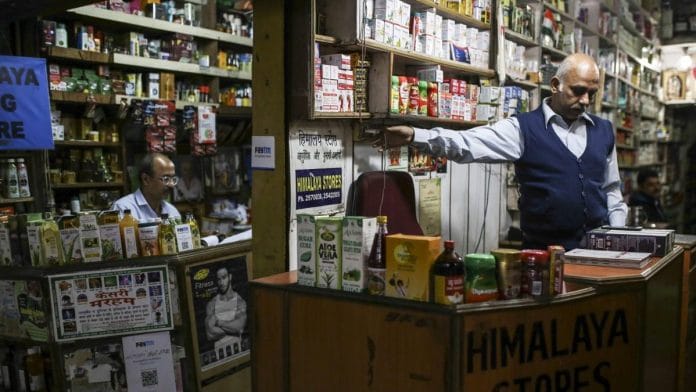New Delhi: The Modi government is set to further regulate the under-fire pharmaceutical sector, this time targeting the storage and distribution practices of the country’s drug supply chain.
At present, no laws govern the transport and delivery of medicines. For instance: A drug manufactured in Himachal Pradesh is transported in trucks or through the railways to other parts of the country under normal temperatures, which could affect its quality.
To plug the loophole, the government is preparing the final list of provisions that will constitute ‘good distribution practices’. These will then be added as a new schedule or chapter in the existing legislation governing medicines, the Drugs and Cosmetics Rules, 1945.
Under the new norms, the entire supply chain — from transportation to the godowns — will have to be temperature-mapped with monitors recording the temperatures and fluctuations.
“These records will be regularly audited by drug inspectors,” said an official of the Central Drugs Standard Control Organisation (CDSCO), the health ministry’s drug regulation wing.
Further, the medicines would carry bar codes for traceability.
Recent controversies push govt to act
The Modi government had begun deliberating on the need to regulate storage and distribution of drugs five years ago. It has now quickened the process as question marks are being raised on the quality of the pharmaceutical sector in the country.
In April this year, the United States had blamed India for its growing problems with counterfeit medicines. It said that nearly 20 per cent of all pharma products sold in India are counterfeit — a damaging claim considering India’s decades-old reputation of being the “pharmacy to the world”.
In May, a book by American journalist Katherine Eban labelled Indian drugs as being of “flea-market quality”. The book, Bottle of Lies, accuses Indian pharma firms of fudging data on quality control and toxic impurities, among other major lapses.
Defending the country’s drug manufacturing practices known as good manufacturing practices (GMPs), two senior officials — one in the health ministry and other in CDSCO — blamed the poor quality of some drugs on the absence of distribution guidelines.
“A small mistake of not storing medicine (while transporting) at the required temperature will make it fail the efficacy or quality test,” the senior bureaucrat in the health ministry said.
“The involvement of unauthorised entities in the distribution and sale of pharmaceutical products is a matter of concern as it leads to the introduction of spurious drugs in the supply chain,” the CDSCO official said. “This isn’t the fault of manufacturers.”
The official added that the new schedule is likely to be added within the next six months.
Also read: Expect cheap blood tests & drugs within first 100 days of Modi 2.0
Why is the provision important?
The health ministry was given the ‘go-ahead’ by the drug technical advisory board (DTAB) — the apex committee on drug and medical devices’ related decisions — to amend the laws in June.
It then tasked the CDSCO to work on the provisions to impart legal sanctity to the suggested distribution guidelines as a ‘schedule’ under the drug laws.
Under the schedule, CDSCO is adding a list of protocols mandatory for every distribution process — procurement, storage, distribution, transportation, and associated documentation and record-keeping practices.
The schedule would permit drug inspectors to conduct surprise checks along with the provision of penalties.
Cost of packaging to go up, industry experts
The pharma industry has expressed support for the move but compliance of these practices will require manufacturers, distributors, wholesalers, transporters and retailers to modify their existing storage practices.
According to a submission by Indian Drug Manufacturing Association to the government, manufacturers will require special packing material to ensure drugs are stored at the required temperature during transit.
“This is expected to increase the distribution and storage cost by approximately 2 to 5 per cent,” the submission said.
It also said that the pharma companies will have to provide additional facilities such as air-conditioners, invertors, data loggers, among others.
“Compliance with these guidelines by the transporters and logistics providers such as courier services will be a real challenge,” the submission added.
Also read: Modi govt’s flagship drugs scheme has worked well only in five states







What a lie they are telling by saying that it is not the fault of the manufacturers!